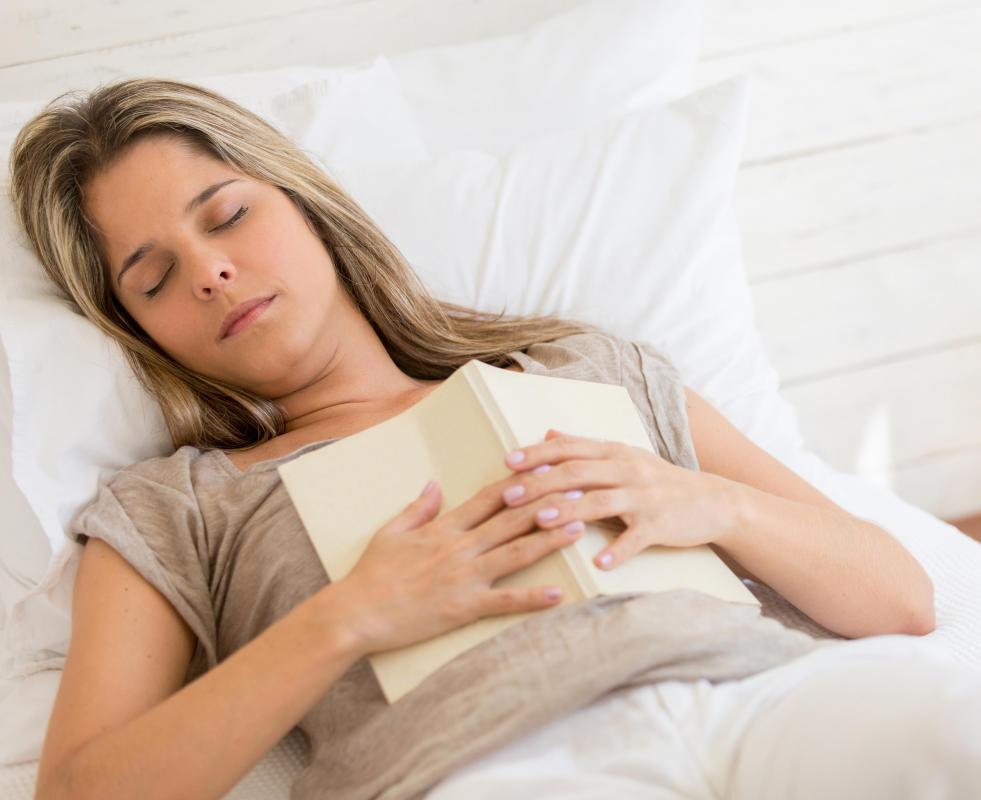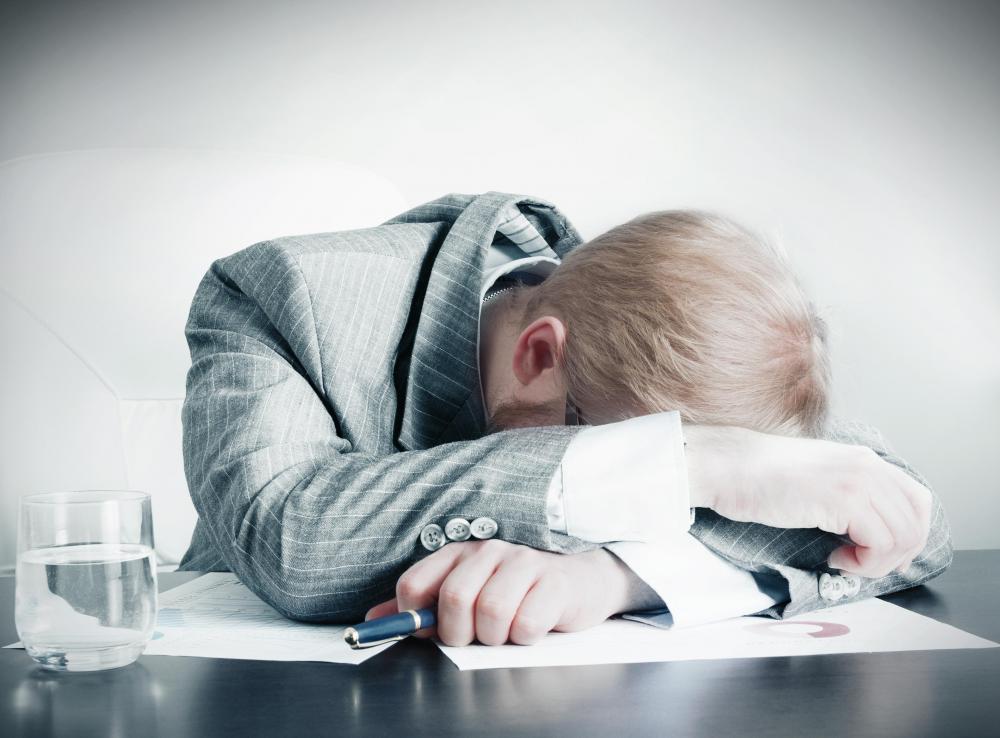At WiseGEEK, we're committed to delivering accurate, trustworthy information. Our expert-authored content is rigorously fact-checked and sourced from credible authorities. Discover how we uphold the highest standards in providing you with reliable knowledge.
What is Somnolence?
Somnolence refers to the strong desire for sleep. In addition, those who suffer from chronic mental fatigue syndrome also can exhibit somnolence. When individuals experience the need for sleep after eating a meal, it is referred to as postprandial somnolence. Although feeling sleepy after meals is common, when the desire becomes uncontrollable, further evaluation might be needed.
Restless legs syndrome and periodic limb movement can be disruptive to nighttime sleeping and cause daytime somnolence. Similarly, those who suffer from sleep apnea typically do not get recuperative sleep, causing somnolence throughout the day. This can be dangerous because it predisposes people to sluggish reaction times and mental confusion, which are contributing factors in motor vehicle accidents. Evaluation by a sleep specialist and treatment for snoring can help minimize symptoms.

Other factors contributing to somnolence include consuming excessive amounts of alcohol, fatigue, and diabetes. Sometimes, when blood sugar levels are abnormally high or low, near-sleep episodes can occur. This scenario demands immediate medical attention because hyperglycemia or hypoglycemia can cause coma, organ damage, and sometimes death. Prompt treatment with glucose replacement or insulin can generally stave off complications, but evaluation and treatment must be rapid.

Occasionally, hypothyroidism, or low thyroid function, can predispose a person to somnolence. Excessive sleepiness, however, is typically not the only symptom of hypothyroidism. It is frequently accompanied by intolerance to cold, constipation, and low heart rate. In addition, a low-functioning thyroid can produce symptoms of eye puffiness, hair loss, and hoarseness. Treatment with thyroid hormone replacement therapy is often successful in regulating thyroid function.

Sometimes, students who pull "all nighters" when studying for exams experience daytime sleepiness. Although these episodes are usually temporary, they can disrupt the normal sleep cycle. The more times a student stays up all night and sleeps during the day, the more difficult it will be to regulate his sleep pattern. In these cases, "sleep hygiene" methods are suggested to restore sleep routines. These methods include retiring at the same time every night, taking a nightly bath, or reading before bed.

Prolonged somnolence needs to be evaluated to rule out medical conditions such as diabetes, neurological conditions, or brain disorders. Diagnostic testing might include CT scans, MRI examination, physical examination, and blood tests. Important blood tests that may reveal reasons for the strong desire to sleep include a thyroid panel, a complete blood count, and a blood chemistry profile. In addition, kidney function tests can help rule out kidney failure, another cause of fatigue and hypersomnolence.
AS FEATURED ON:
AS FEATURED ON:

















Discussion Comments
I have been fighting somnolence at work for about six months. When I eat, I immediately fall asleep. I feel terrible afterward and my memory is rapidly declining. I have sleep apnea. It's like Russian roulette, only my lack of sleep is slowly killing me.
Post your comments